Lois Parshley in Nautilus:
 “Of man’s first disobedience, and the fruit of that forbidden tree,” John Basinger said aloud to himself, as he walked on a treadmill. “Of man’s first disobedience…” In 1992, at the age of 58, Basinger decided to memorize Paradise Lost, John Milton’s epic poem, as a form of mental activity while he was working out at the gym. An actor, he’d memorized shorter poems before, and he wanted to see how much of the epic he could remember. “As I finished each book,” he wrote, “I began to perform it and keep it alive in repertory while committing the next to memory.” The 12 books of Paradise Lost contain over 60,000 words; it took Basinger about 3,000 hours to learn them by rote. He did so by reciting the piece, line-by-line out loud, for about an hour a day for nine years. When he memorized all 12 books, in 2001, Basinger performed the masterpiece in a live recital that lasted three days. Since then, he’s performed smaller sections for various audiences, eventually attracting the attention of John Seamon, a psychologist at Wesleyan University, in Connecticut. In 2008, “He recited for an hour in the Wesleyan library,” says Seamon. “He’d given out copies of Milton’s book so we could follow along. At the end of the talk I introduced myself and said ‘I’d love to study your memory.’” Basinger agreed, and so Seamon devised a test.
“Of man’s first disobedience, and the fruit of that forbidden tree,” John Basinger said aloud to himself, as he walked on a treadmill. “Of man’s first disobedience…” In 1992, at the age of 58, Basinger decided to memorize Paradise Lost, John Milton’s epic poem, as a form of mental activity while he was working out at the gym. An actor, he’d memorized shorter poems before, and he wanted to see how much of the epic he could remember. “As I finished each book,” he wrote, “I began to perform it and keep it alive in repertory while committing the next to memory.” The 12 books of Paradise Lost contain over 60,000 words; it took Basinger about 3,000 hours to learn them by rote. He did so by reciting the piece, line-by-line out loud, for about an hour a day for nine years. When he memorized all 12 books, in 2001, Basinger performed the masterpiece in a live recital that lasted three days. Since then, he’s performed smaller sections for various audiences, eventually attracting the attention of John Seamon, a psychologist at Wesleyan University, in Connecticut. In 2008, “He recited for an hour in the Wesleyan library,” says Seamon. “He’d given out copies of Milton’s book so we could follow along. At the end of the talk I introduced myself and said ‘I’d love to study your memory.’” Basinger agreed, and so Seamon devised a test.
Then 74, Basinger came into the lab to perform a series of cued recall tests. Scientists read two successive lines from each of the poem’s 12 books and then asked Basinger to recall the next 10 lines. The results, published in Memory in 2010, were surprising: Despite the amount of elapsed time since his memorization process, Basinger’s recall was, overall, word-perfect 88 percent of the time. When he was prompted with lines that opened one of the 12 books, his accuracy increased to 98 percent.
Seamon wondered how he might explain this performance, and realized deliberate practice theory could be useful. Although it was “formulated to account for elite performance in chess, music, and sports, it provides a reasonable basis for interpreting JB’s procedure for memorising Paradise Lost,” says Seamon. “He too, in daily short sessions, devoted thousands of hours of study over a period of years to achieve his mastery of Milton.” But Basinger didn’t just remember the words; it would be a mistake, says Seamon, to interpret Basinger’s performance as “simply a remarkable demonstration of brute force, rote memorisation.” In order to memorize the epic poem, he spent a lot of time repeatedly analyzing its meaning and structure. Acting researchers emphasize this strategy, Seamon notes: “Deep encoding requires actors to attend to the exact wording of lines, and it is the focus on exact wording to gain an understanding of the characters that yields verbatim memory, instead of merely the retention of gist.”
More here.
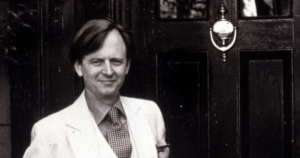 Wolfe’s preposterous clothing was a constant reminder of a core journalistic truth: to be an observer requires distance, and a writer’s alienation from his subject is not to be annihilated but managed and, most often, treasured. His was a much better pose. There are few worthwhile memoirs of the space program or the High (in at least two senses) Counterculture. But The Right Stuff and The Electric Kool-Aid Acid Test are as close to imperishable as journalism ever gets. In both cases, Wolfe examined a scene with a subjectivity and style exclusive to himself. He saw things as Tom Wolfe, with his own gift of studied by playful detachment.
Wolfe’s preposterous clothing was a constant reminder of a core journalistic truth: to be an observer requires distance, and a writer’s alienation from his subject is not to be annihilated but managed and, most often, treasured. His was a much better pose. There are few worthwhile memoirs of the space program or the High (in at least two senses) Counterculture. But The Right Stuff and The Electric Kool-Aid Acid Test are as close to imperishable as journalism ever gets. In both cases, Wolfe examined a scene with a subjectivity and style exclusive to himself. He saw things as Tom Wolfe, with his own gift of studied by playful detachment.
 The Tale is one of the bravest and smartest movies I’ve ever seen. Writer-director Jennifer Fox dives into the sexual abuse she suffered as a teenager, and proceeds to interrogate her own memories with unflinching clarity. Furthermore, rather than simply stick to her background as a documentary filmmaker and try to tell her story in that medium, she wisely decides to make a narrative feature that gives her the tools to more effectively dive into both the abuse she suffered and the investigation to find the truth behind her own memories. With an outstanding cast, led by the incomparable Laura Dern, at her disposal, Fox weaves a captivating and gut-wrenching story about the lies told to us, and the lies we tell ourselves. Documentarian and professor Jennifer (Dern) comes home from working on a project to get a frantic series of voicemails from her mother Nettie (Ellen Burstyn). While cleaning out some boxes, Nettie discovered a story Jennifer wrote when she was thirteen recounting a romantic relationship she had with her running coach Bill (Jason Ritter) and riding instructor Mrs. G (Elizabeth Debicki). Although Jennifer acknowledges she had a relationship with an older man, it isn’t until she starts reading her own story closer that she starts to discover her own flawed assumptions, thinking she was more mature when pictures show a small, plain 13-year-old Jenny (Isabelle Nélisse). Rattled by how her memories may have betrayed her, Jennifer starts an investigation to uncover the truth behind her original story.
The Tale is one of the bravest and smartest movies I’ve ever seen. Writer-director Jennifer Fox dives into the sexual abuse she suffered as a teenager, and proceeds to interrogate her own memories with unflinching clarity. Furthermore, rather than simply stick to her background as a documentary filmmaker and try to tell her story in that medium, she wisely decides to make a narrative feature that gives her the tools to more effectively dive into both the abuse she suffered and the investigation to find the truth behind her own memories. With an outstanding cast, led by the incomparable Laura Dern, at her disposal, Fox weaves a captivating and gut-wrenching story about the lies told to us, and the lies we tell ourselves. Documentarian and professor Jennifer (Dern) comes home from working on a project to get a frantic series of voicemails from her mother Nettie (Ellen Burstyn). While cleaning out some boxes, Nettie discovered a story Jennifer wrote when she was thirteen recounting a romantic relationship she had with her running coach Bill (Jason Ritter) and riding instructor Mrs. G (Elizabeth Debicki). Although Jennifer acknowledges she had a relationship with an older man, it isn’t until she starts reading her own story closer that she starts to discover her own flawed assumptions, thinking she was more mature when pictures show a small, plain 13-year-old Jenny (Isabelle Nélisse). Rattled by how her memories may have betrayed her, Jennifer starts an investigation to uncover the truth behind her original story. Bertrand Routy earned a lamentable reputation with Parisian oncologists in 2015. A doctoral student at the nearby Gustave Roussy cancer centre, Routy had to go from hospital to hospital collecting stool samples from people who had undergone cancer treatments. The doctors were merciless. “They made fun of me,” Routy says. “My nickname was Mr Caca.” But the taunting stopped after Routy and his colleagues published evidence that certain gut bacteria seem to boost people’s response to treatment
Bertrand Routy earned a lamentable reputation with Parisian oncologists in 2015. A doctoral student at the nearby Gustave Roussy cancer centre, Routy had to go from hospital to hospital collecting stool samples from people who had undergone cancer treatments. The doctors were merciless. “They made fun of me,” Routy says. “My nickname was Mr Caca.” But the taunting stopped after Routy and his colleagues published evidence that certain gut bacteria seem to boost people’s response to treatment There is nothing solid or pragmatic about happiness, grief, love. A successful business, however, has to be run along sensible lines, and a businessman must be able to count on his employees just as he can count on the food on his plate actually being there. It is at this junction of reason, driven by the evidence of one’s physical senses, and the other, intangible, unbelievable world that Tabish Khair places his new novel.
There is nothing solid or pragmatic about happiness, grief, love. A successful business, however, has to be run along sensible lines, and a businessman must be able to count on his employees just as he can count on the food on his plate actually being there. It is at this junction of reason, driven by the evidence of one’s physical senses, and the other, intangible, unbelievable world that Tabish Khair places his new novel. The past month has seen quite a few events and articles celebrating the 100th anniversary of Richard Feynman’s birth (see for example
The past month has seen quite a few events and articles celebrating the 100th anniversary of Richard Feynman’s birth (see for example 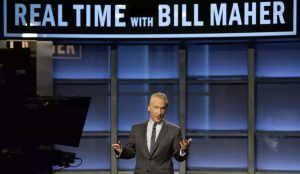 When will Muslims step up and reform Islam?” asked the self-identified “progressive and intersectional” college student, following a presentation of my book,
When will Muslims step up and reform Islam?” asked the self-identified “progressive and intersectional” college student, following a presentation of my book,  It’s not possible to justify my liaisons with married men; I won’t even try. I’m not proud that, for a few years while living near London, I entered into casual relationships with married men. But I don’t regret it. What I learnt from these men warrants discussion, even though I’ve recently been publicly condemned for doing so in The New York Times.
It’s not possible to justify my liaisons with married men; I won’t even try. I’m not proud that, for a few years while living near London, I entered into casual relationships with married men. But I don’t regret it. What I learnt from these men warrants discussion, even though I’ve recently been publicly condemned for doing so in The New York Times. “Of man’s first disobedience, and the fruit of that forbidden tree,” John Basinger said aloud to himself, as he walked on a treadmill. “Of man’s first disobedience…” In 1992, at the age of 58, Basinger decided to memorize Paradise Lost, John Milton’s epic poem, as a form of mental activity while he was working out at the gym. An actor, he’d memorized shorter poems before, and he wanted to see how much of the epic he could remember. “As I finished each book,” he wrote, “I began to perform it and keep it alive in repertory while committing the next to memory.” The 12 books of Paradise Lost contain over 60,000 words; it took Basinger about 3,000 hours to learn them by rote. He did so by reciting the piece, line-by-line out loud, for about an hour a day for nine years. When he memorized all 12 books, in 2001, Basinger performed the masterpiece in a live recital that lasted three days. Since then, he’s performed smaller sections for various audiences, eventually attracting the attention of John Seamon, a psychologist at Wesleyan University, in Connecticut. In 2008, “He recited for an hour in the Wesleyan library,” says Seamon. “He’d given out copies of Milton’s book so we could follow along. At the end of the talk I introduced myself and said ‘I’d love to study your memory.’” Basinger agreed, and so Seamon devised a test.
“Of man’s first disobedience, and the fruit of that forbidden tree,” John Basinger said aloud to himself, as he walked on a treadmill. “Of man’s first disobedience…” In 1992, at the age of 58, Basinger decided to memorize Paradise Lost, John Milton’s epic poem, as a form of mental activity while he was working out at the gym. An actor, he’d memorized shorter poems before, and he wanted to see how much of the epic he could remember. “As I finished each book,” he wrote, “I began to perform it and keep it alive in repertory while committing the next to memory.” The 12 books of Paradise Lost contain over 60,000 words; it took Basinger about 3,000 hours to learn them by rote. He did so by reciting the piece, line-by-line out loud, for about an hour a day for nine years. When he memorized all 12 books, in 2001, Basinger performed the masterpiece in a live recital that lasted three days. Since then, he’s performed smaller sections for various audiences, eventually attracting the attention of John Seamon, a psychologist at Wesleyan University, in Connecticut. In 2008, “He recited for an hour in the Wesleyan library,” says Seamon. “He’d given out copies of Milton’s book so we could follow along. At the end of the talk I introduced myself and said ‘I’d love to study your memory.’” Basinger agreed, and so Seamon devised a test.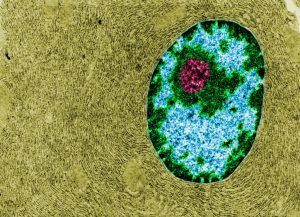 Once there was a mutant worm in an experiment. It lived for 46 days. This was much longer than the oldest normal worm, which lived just 22. Researchers
Once there was a mutant worm in an experiment. It lived for 46 days. This was much longer than the oldest normal worm, which lived just 22. Researchers 



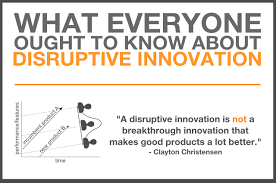 30 years ago I moved from the UK to New York City and I gave up my car. I had mixed feelings about doing so at the time – I was only 21 and driving was still a novelty and an expression of independence. When I moved out of New York City to upstate 13 years later, I again became a car owner and regular driver. After my divorce, when I moved back to New York City, I once again gave up my car, this time happily. I would honestly be thrilled if I never had to get behind the wheel of a car again. I don’t enjoy driving, I’m not the most confident driver (I cannot reverse to save my life even after over 30 years of driving) and I generally would prefer to be driven. My transportation needs are now taken care of by a combination of public transport, ride sharing services and a boyfriend with a car who is very good about driving me around. And thanks to online shopping, the retail convenience of a car ownership has almost totally disappeared. As far as I’m concerned, this is a perfect state of affairs.
30 years ago I moved from the UK to New York City and I gave up my car. I had mixed feelings about doing so at the time – I was only 21 and driving was still a novelty and an expression of independence. When I moved out of New York City to upstate 13 years later, I again became a car owner and regular driver. After my divorce, when I moved back to New York City, I once again gave up my car, this time happily. I would honestly be thrilled if I never had to get behind the wheel of a car again. I don’t enjoy driving, I’m not the most confident driver (I cannot reverse to save my life even after over 30 years of driving) and I generally would prefer to be driven. My transportation needs are now taken care of by a combination of public transport, ride sharing services and a boyfriend with a car who is very good about driving me around. And thanks to online shopping, the retail convenience of a car ownership has almost totally disappeared. As far as I’m concerned, this is a perfect state of affairs.  The freer the market, the more people suffer.
The freer the market, the more people suffer.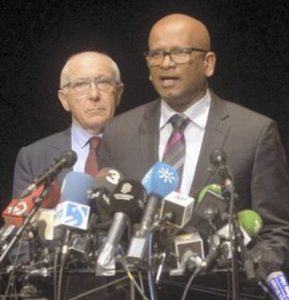 Four years ago, I was in a hideout of the Basque separatist group Eta in southern France, surrounded by explosives, revolvers, grenades and rocket launchers. I was present as the chief of the commission to verify a ceasefire and begin the group’s disarmament. It followed more than three years of difficult discussions with Eta leaders, Basque politicians and Basque civil society. We convinced Eta’s leaders that clinging to weapons was going to help neither themselves nor the Basque people.
Four years ago, I was in a hideout of the Basque separatist group Eta in southern France, surrounded by explosives, revolvers, grenades and rocket launchers. I was present as the chief of the commission to verify a ceasefire and begin the group’s disarmament. It followed more than three years of difficult discussions with Eta leaders, Basque politicians and Basque civil society. We convinced Eta’s leaders that clinging to weapons was going to help neither themselves nor the Basque people. About a year ago I met up for the first time with a woman I knew only online. Articulate and funny, she is a brilliant writer who studied literature in graduate school. So I was surprised that, when I mentioned a recent novel I liked, my new friend responded with head-shaking resignation. “I can’t see how anyone justifies talking about books anymore,” she said. Our nation was so overwhelmed with causes demanding attention and action, she suggested, that it had entered a state of constant emergency, whereby pursuits both personal and political must be pitted against one another to determine which are essential.
About a year ago I met up for the first time with a woman I knew only online. Articulate and funny, she is a brilliant writer who studied literature in graduate school. So I was surprised that, when I mentioned a recent novel I liked, my new friend responded with head-shaking resignation. “I can’t see how anyone justifies talking about books anymore,” she said. Our nation was so overwhelmed with causes demanding attention and action, she suggested, that it had entered a state of constant emergency, whereby pursuits both personal and political must be pitted against one another to determine which are essential.